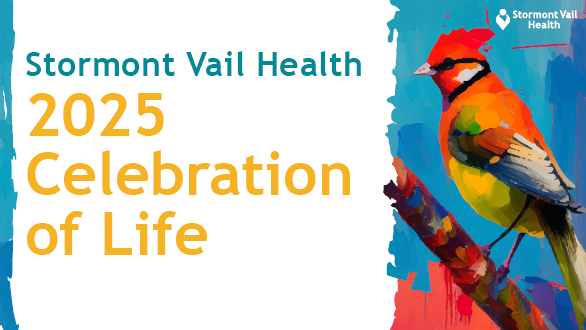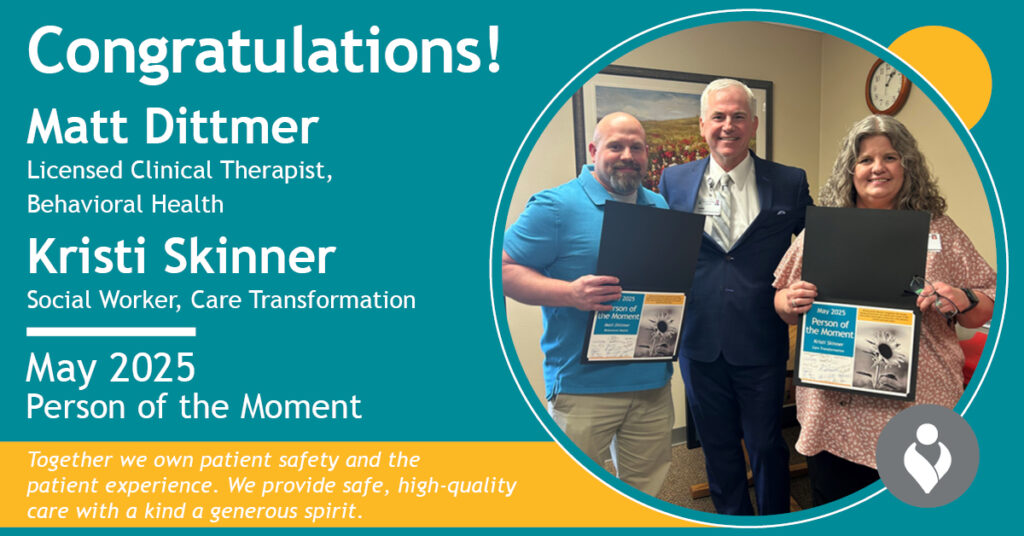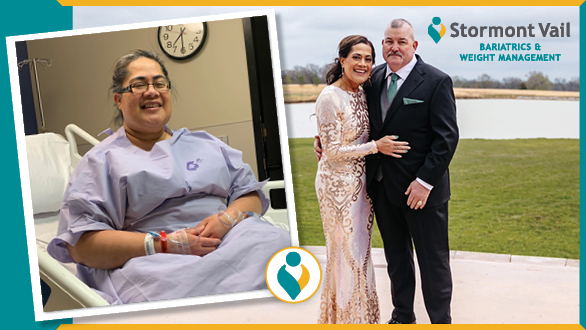Newsworthy
Alzheimer Community Forum: Clinical Progress, Resources, & the Effects of Hearing Loss
Stormont Vail Health is hosting a community forum alongside the Alzheimer’s Association, NuSound Hearing, and the Cotton O’Neil Research Center on Tuesday, Aug 29, from 5–7 p.m. in the Pozez Education Center Auditorium in Topeka. During this free event, Stormont Vail’s Dr. Michael Cox will share information about Alzheimer’s disease and new advances in clinical research.
Attendees can also discover resources and support from the Alzheimer’s Association, Cotton O’Neil Research Center, community resources, and local care facilities. In addition, this event will also focus on how hearing loss could contribute to memory loss from experts at NuSound Hearing.
Call 1 (800) 272-3900 to save your seat or register online.
10 Facts about Alzheimer’s Disease
- Alzheimer’s disease is the sixth-leading cause of death in the United States, according to the Centers for Disease Control and Prevention.
- In 2023, an estimated 6.7 million seniors 65 and older have Alzheimer’s.
- Adults 75 or older account for 73% of people with Alzheimer’s.
- Experts project a 7% increase in adults 65 and older who develop Alzheimer’s between 2023 and 2025.
- Estimates project that 13.8 million adults over 65 will develop Alzheimer’s disease by 2060.
- Alzheimer’s can develop 20 years or more before noticeable warning signs like memory loss occur.
- The rate of Alzheimer’s or dementia among Black and Hispanic older adults is disproportionately higher than in White older adults.
- Women make up nearly 75% of Alzheimer’s patients.
- Caregivers to Alzheimer’s patients provide almost 25 hours more care per week in the last 12 months of life than those who care for a loved one with cancer (64.5 hours versus 39.3).
- Hypertension, diabetes, and similar cardiovascular disease risk factors are also linked with an increased risk of dementia.
Why Clinical Research Matters
Early detection and prevention are the most effective ways to manage cognitive diseases like Alzheimer’s. Unfortunately, several barriers can hinder people’s ability to seek and receive timely diagnosis and treatment.
For example, primary care physicians may suspect that a patient’s memory loss is more than cognitive decline but lack the confidence and time to investigate further. Instead, they may refer their patient to a geriatrician or other specialist.
However, the ongoing shortage of specialized health providers can mean longer appointment wait times, further delaying a possible diagnosis. Delays not only prevent timely diagnosis but also can potentially prevent them from joining life-changing clinical trials.
According to the Alzheimer’s Association, two in three geriatricians and neurologists are familiar with Alzheimer’s-related clinical research. This familiarity is essential in connecting patients with the right trials based on individual conditions and needs.
During clinical trials, participants can receive new treatments, support from others living with dementia, and guidance as they plan for financial, living, and care changes they may encounter as their condition develops.
As the number of people with Alzheimer’s grows, so will the importance of clinical trials, which are vital to finding safe and effective treatments. Stormont Vail’s Clinical Research is currently conducting a study of Remternetug in participants with early Alzheimer’s disease. This study aims to collect information on this medication’s safety and efficacy.
During this paid study, participants receive PET scans and routine MRIs. Candidates can enroll at the Cotton O’Neil Clinical Research Center at (785) 368-0744.
The Connection Between Hearing Loss and Memory Decline
Like a cure, experts have yet to discover a specific cause of Alzheimer’s. However, through clinical trials, researchers have found several potential associations that may increase the likelihood of someone developing this disease.
Hearing loss is one potential link, as many people with Alzheimer’s also have impaired hearing. But just because someone has hearing loss doesn’t mean they’ll also develop a cognitive disease. It can be challenging for researchers to isolate Alzheimer’s and hearing loss symptoms.
Furthermore, it can be challenging to determine if an older person struggles to follow a conversation because they have a hearing or cognitive impairment. For this reason, routine hearing exams are essential for people with and without dementia.
Do You Know or Care for Someone Impacted by Alzheimer’s?
Education about Alzheimer’s, risk factors and treatment options, and available resources is crucial for people with this condition and their loved ones. This disease is bigger than anyone can manage alone, so find help and connection by joining our upcoming Community Forum. Call 1 (800) 272-3900 to save your seat.
Sources:
- Alzheimer’s Association. (2023). On the Front Lines: Primary Care Physicians and Alzheimer’s Care in America. https://www.alz.org/media/Documents/alzheimers-facts-and-figures.pdf
- Brunner, M. (2023, March 31). Topeka clinic part of trial unlocking answers to Alzheimer’s. Https://Www.wibw.com. https://www.wibw.com/2023/03/31/topeka-clinic-part-trial-unlocking-answers-alzheimers/
- Sight and hearing loss. (n.d.). Alzheimer’s Society. https://www.alzheimers.org.uk/about-dementia/symptoms-and-diagnosis/sight-hearing-loss




